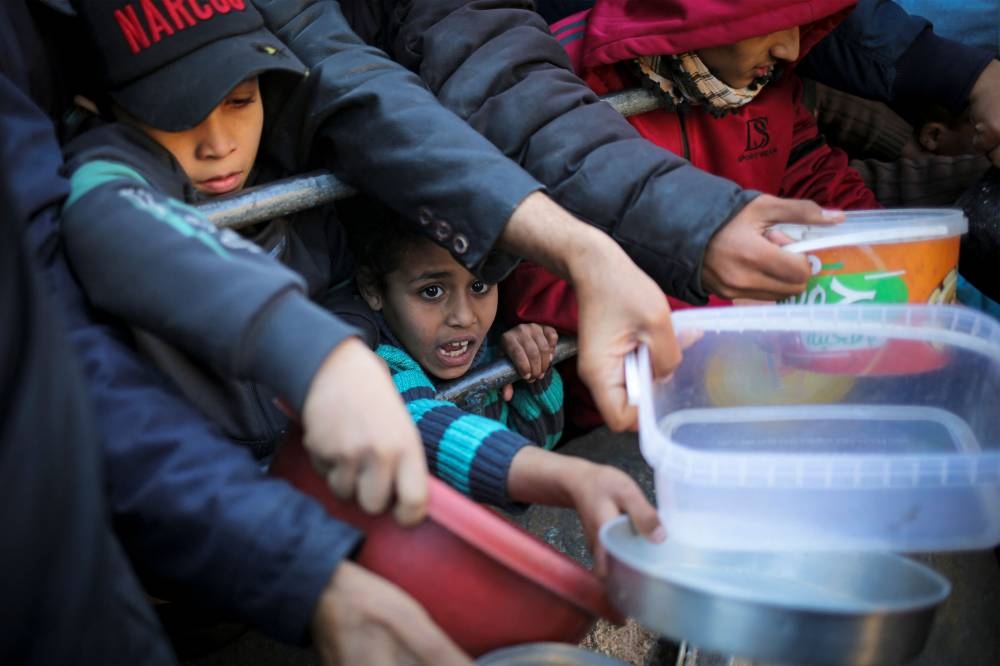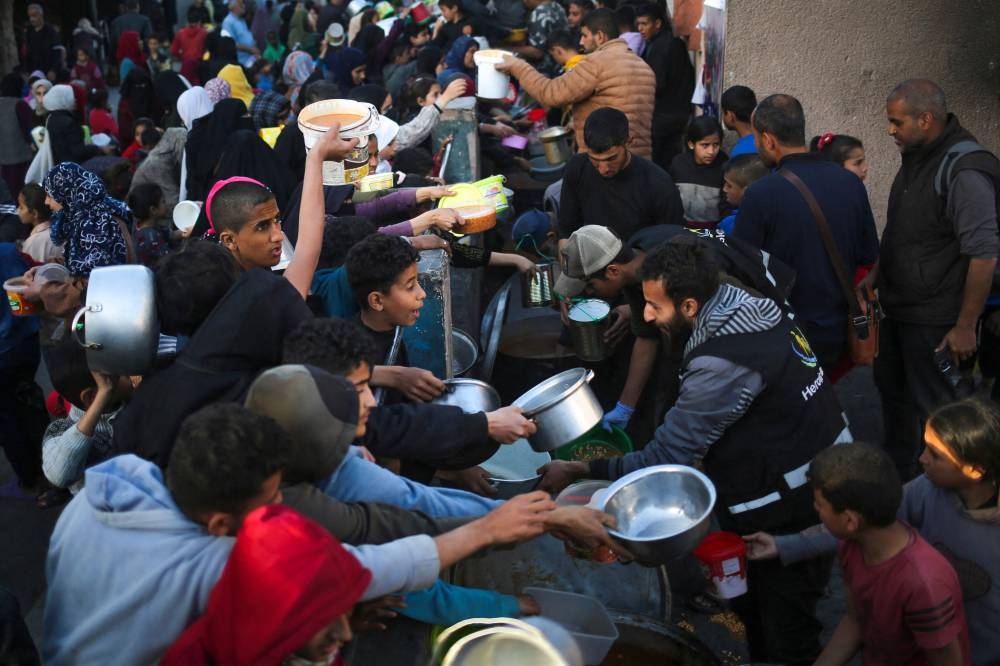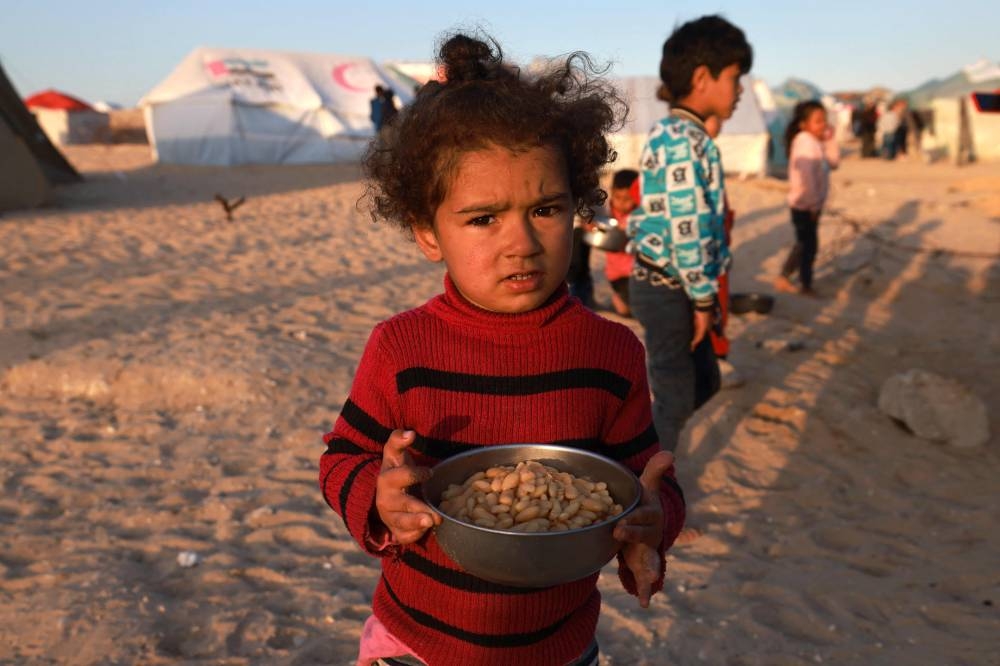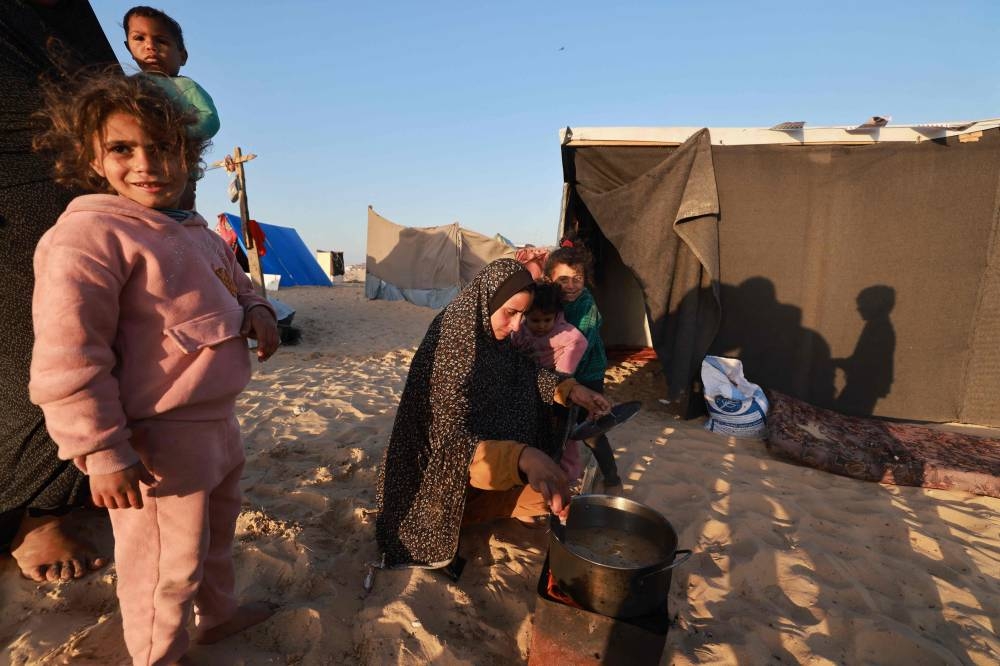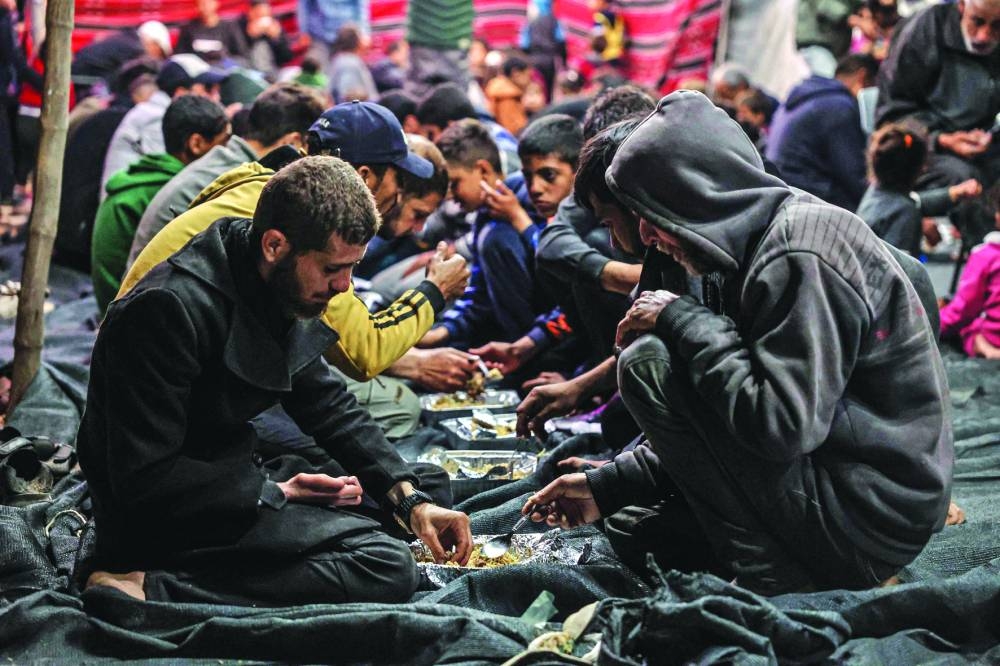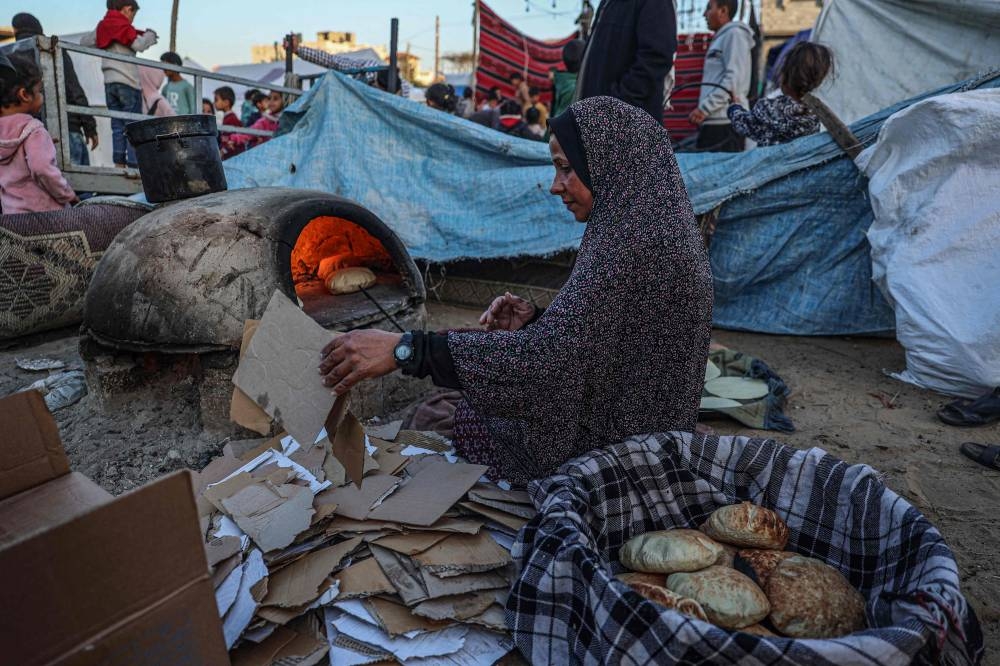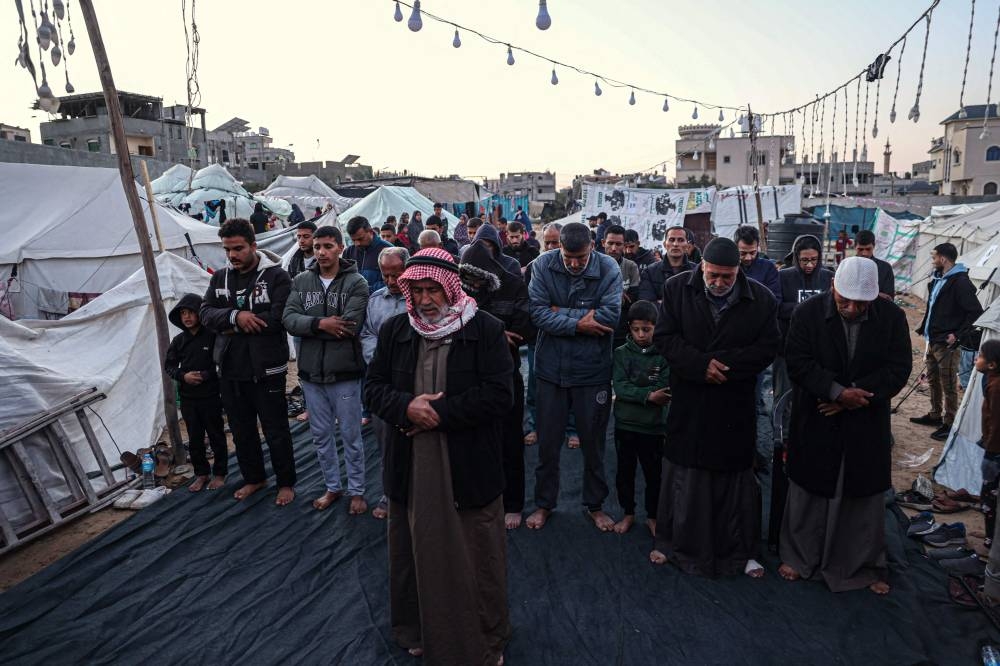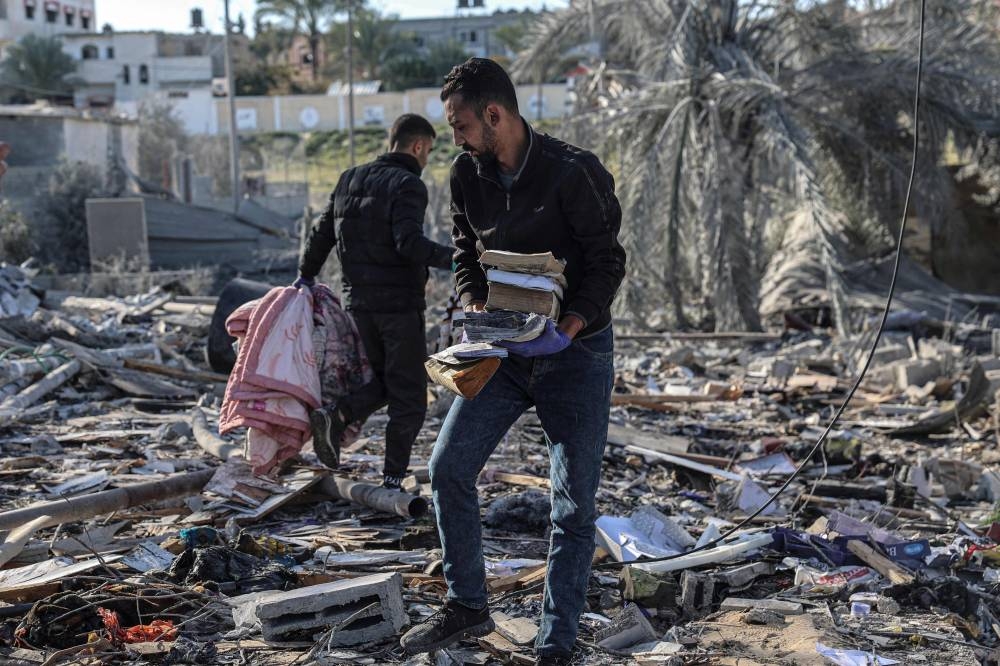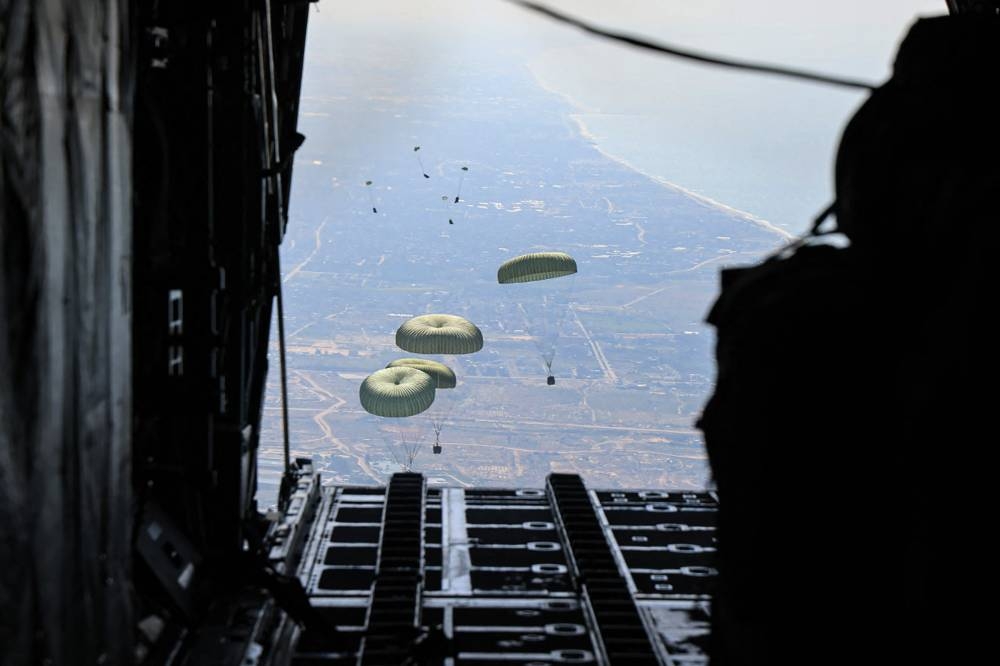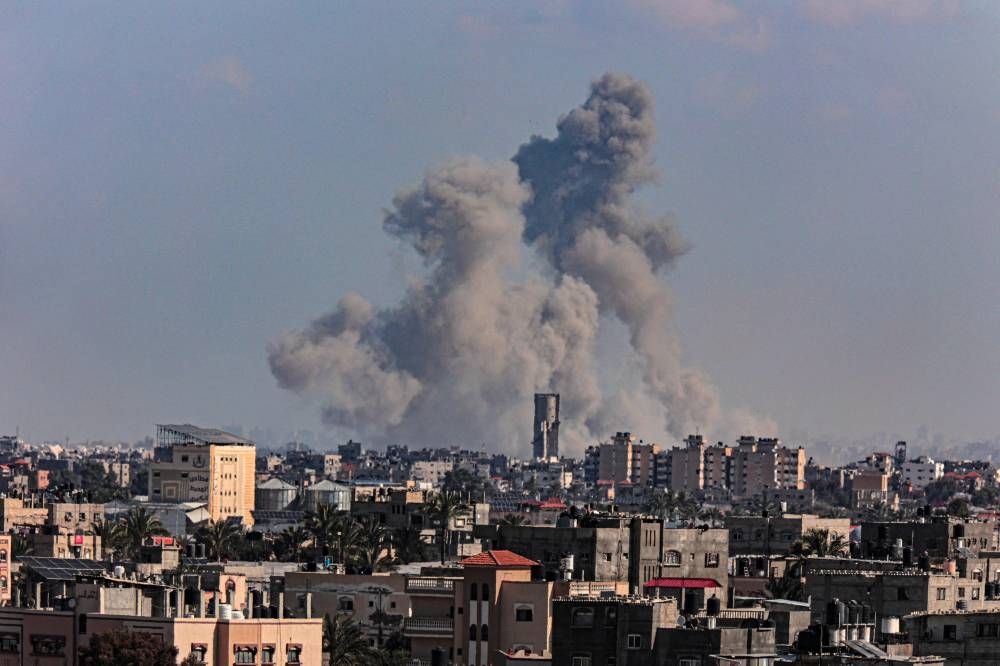As the Muslim world welcomed the holy month and its customary daytime fast, many Gazans faced bombardment that saw residents once more search through the rubble of destroyed homes for survivors and bodies.
Al-Aqsa mosque restrictions risk explosion: Jordan
Jordan's Foreign Minister Ayman Safadi said Monday restrictions imposed by Israel on Muslim worshippers' access to Jerusalem's Al-Aqsa Mosque compound during the Muslim fasting month was pushing the situation towards an "explosion". "We warn that desecrating the sanctity of Al-Aqsa Mosque is playing with fire," Safadi said in a joint news conference with the Vatican's foreign minister Archbishop Paul Gallagher.
Gazans are feeling the shortages even more during Ramadan.
"We don't know what we are going to eat to break the fast," Zaki Abu Mansour, 63, said inside his tent. "I have only a tomato and a cucumber... and I have no money to buy anything."
Goods that are available are sold at exorbitant prices, residents say.
Fighting raged across Gaza, even as UN Secretary-General Antonio Guterres called for "silencing the guns" during the Muslim holy month and said he was "appalled and outraged that conflict is continuing".
Guterres also appealed for removal of "all obstacles" to aid delivery.
Hamas authorities reported at least 67 people killed since Sunday, with more than 40 air strikes across the territory.
Israel's bombardment and ground offensive has killed 31,112 Palestinians, mostly women and children, according to Gaza's health ministry.
Israel was checking whether Hamas's deputy military leader had been killed in an airstrike in Gaza, Israeli media said, as prospects faded of talks securing a ceasefire.
With aid entering Gaza by truck far below pre-war levels, and Gazans increasingly desperate, foreign governments have turned to airdrops and are now trying to operate a maritime aid corridor.
Jose Andres said his American charity World Central Kitchen and its partner Open Arms are "ready to sail for Gaza" from Cyprus with food aid on the new maritime corridor which the European Union had hoped could open last Sunday.
The United States and other countries again airdropped aid into northern Gaza Monday.
Weeks of talks involving US, Qatari and Egyptian mediators failed to bring about a truce and hostage exchange deal ahead of Ramadan.
While many Palestinians did not know where to find their next meal, others still found ways to celebrate the start of the holy month, fashioning meagre decorations and distributing traditional lanterns between their tents.
In Rafah, dozens of Gazans offered prayers on Ramadan's first day in the ruins of a mosque hit by an Israeli air strike just days ago.

